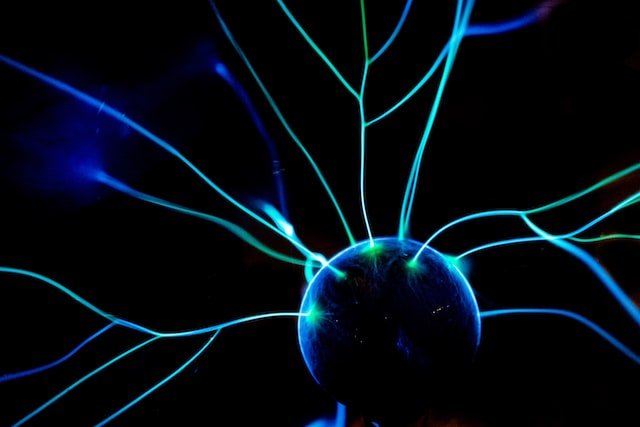Perhaps you or a loved one want to undergo TMS therapy but are hesitating due to a fundamental worry about its effects. Can TMS affect your cognitive functions or cause memory loss, like other alternative therapies?
Understanding how it works may explain it better.
What is TMS Therapy?
TMS therapy usesa unique method of applying magnetic fields that pulsate through the skull for therapeutic benefit, most commonly for the treatment of depression symptoms.
Transcranial Magnetic Stimulation (TMS) is based on electromagnetic induction. Magnetic fields are produced by an electrical current in a coil and then passed through the skull, creating an electric field underneath it. Short, brief currents are produced by magnetic stimulators.
The magnetic field is similar to that produced by an MRI machine used in magnetic resonance imaging. However, the magnetic energy used in complete TMS therapy is equivalent to only a small fraction of just one brain scan with an MRI. TMS therapy techniques differ radicallyfrom that of MRI. Instead of the use of static magnetic fields, the pulsed magnetic fields in TMS stimulate underactive neurons.
Exciting these neurons cause them to release more neurotransmitters, resulting in different connectivity and communication among neurons. This can function like a “reset” button, whereby the brain will respond differently to various stimuli. Even though it is often confused with shock therapy, TMS therapy is not nearly as invasive. An ECT treatment session occurs slowly, with memory loss and confusion occurring commonly. Brain cells are also not activated by ECT.
Who Can Undergo TMS Therapy?
Transcranial Magnetic Stimulation (TMS) is also sometimes known as Repetitive Transcranial Magnetic Stimulation (rTMS), commonly used to treat depression.
Even though tens of millions of people suffer from depression, not all patients will benefit from it. Most people who benefit from the therapy have attempted traditional methods of treating depression, such as other antidepressant medications and talk therapy, and have not succeeded.
After TMS therapy has been approved as a treatment method for a mood disorder such as major depression, it later started being used and researched for other means. These include pain from specific migraine headaches, anxiety, post-traumatic stress disorder, obsessive-compulsive disorder, Alzheimer’s disease, Parkinson’s disease, and possibly bipolar disorder.
Can TMS Cause Memory Loss?
Factors that contribute to memory loss are usually lack of sleep, stress, alcohol abuse, and depression. Some medical conditions can also lead to memory loss, such as dementia, age, and cognitive impairment. A range of medications that are used to treat illnesses and mental disorders also cause memory issues.
TMS therapy was systematically evaluated for its effects on memory, and clinical trials showed no negative consequences on memory function. TMS is different from other brain stimulation methods, such as electroconvulsive therapy (ECT), which is related to memory loss. Even though electroconvulsive therapy is also commonly used to treat people with mental disorders, depression being among them, patients receiving ECT have short-term confusion, issues in concentration, and commonly short-term memory loss after treatment.
TMS in Memory Improvement
TMS therapy is much less invasive and helps to regulate brain signals, learning, and mood, which is why it is commonly used to treat depression, anxiety, and other mental health issues. In fact, TMS has been used in clinical trials in the study of learning and memory processes.
About 16 million people in the United States suffer from age-related memory impairment, which is something that TMS could help improve.
Many studies and clinical trials are establishing the link between TMS therapy as an aid for memory and its constructive effect on brain health. Clinical trials demonstrated that TMS therapy does not negatively affect memory or concentration, but in turn boosts memory performance. A clinical trial in 2019 discovered improvements in memory and cognition in individuals with Alzheimer’s Disease after TMS therapy.
Even though it is not yet known how long an improvement lasts after brain stimulation, clinical trial and other studies have shown that TMS therapy can improve memory and brain health.
Can TMS Therapy Cause Brain Tumors?
The antidepressant effect of TMS therapy is well known, meaning that it can increase brain density. Does that mean that it can lead to a brain tumor?
TMS therapy uses the same type of magnetic fields as MRIs, which have not led to brain tumors. A medical professional will always observe patients and look out for worsening symptoms or unusual behavior.
There is a small risk of a seizure occurring during treatment. This is usually common for people who have undergone head injury, and the risk for seizure is no larger than what is common among oral antidepressant medications. The general risks associated with TMS therapy are very few.
Precaution is taken for those who have a history of seizure, brain surgery, or head injury, those who may have any implanted devices such as pacemakers, or have metal in the head, like surgical clips or shrapnel.
Is TMS Therapy Uncomfortable?
TMS is widely used for stimulation of the brain that is noninvasive because its application is painless. The TMS therapy approach uses small electrical currents, gently stimulating the brain with magnetic pulses. Magnetic pulses induce a flow of electricity that is much too minuscule for a patient to feel during treatment sessions.
Whereas patients receiving electroconvulsive therapy (ECT) have to be sedated and given muscle relaxants, TMS therapy patients sit in a chair and are alert as they undergo therapy. Unlike medications, the side effects of TMS are very few. A person runs no risk for nausea, dry mouth, weight gain, gastrointestinal issues, sexual dysfunction, or sedation.
Patients treated with TMS have usually reported some discomfort, but these symptoms are generally mildand fade away as therapy continues. Most patients report scalp discomfort, which is described as a knocking or tapping sensation, or facial twitching during treatment. Both of these symptoms go away after a few treatments.
How Does Transcranial Magnetic Stimulation Work?
A person who undergoes TMS therapy does not have to reside at a treatment center. Normally, TMS therapy lasts for four to six weeks and consists of at least five sessions weekly that last up to forty minutes each.

TMS therapy involves a treatment provider placing an electromagnetic coil on a person’s scalp, near the forehead. Short pulses of the magnetic field produce an electric current in the brain that stimulates underactive neurons. It does so, especially in areas of the brain that are thought to function differently in people suffering from addiction or those with major depressive disorder and other disorders.
By activating brain cells or neurons, changes in the brain occur that are beneficial to the treatment of these conditions. For example, repetitive (r)TMS therapy can decrease or increase the activity of specific brain regions, like the prefrontal cortex. The prefrontal cortex is a key component in addiction as it connects important areas of the dopamine reward system.
When the cortex receives magnetic field pulses, neurons are activated and can reach other brain areas.
Where Can I Find TMS Therapy?
GIA Chicago has a variety of cutting-edge TMS systems and dedicated, experienced staff for mental wellness support. As a world-class mental health center specializing in TMS therapy, we can help you improve your health today.





